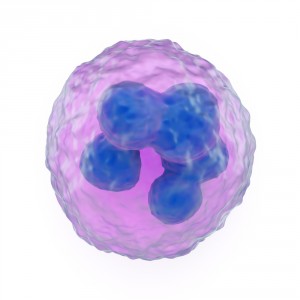 A recent study using a mouse model of Rheumatoid Arthritis (RA) showed that cellular immunotherapy by administration of monocytic myeloid-derived suppressor cells (M-MDSCs) may be an efficient therapy for this condition in humans. The study entitled “Myeloid-derived suppressor cells regulate T cell and B cell responses during autoimmune disease” was published in the Journal of Leukocyte Biology by Kristen R. Crook, first author, and Dr. Liu Peng, senior author, from Thurston Arthritis Research Center, University of North Carolina at Chapel Hill, Chapel Hill, USA, and colleagues.
A recent study using a mouse model of Rheumatoid Arthritis (RA) showed that cellular immunotherapy by administration of monocytic myeloid-derived suppressor cells (M-MDSCs) may be an efficient therapy for this condition in humans. The study entitled “Myeloid-derived suppressor cells regulate T cell and B cell responses during autoimmune disease” was published in the Journal of Leukocyte Biology by Kristen R. Crook, first author, and Dr. Liu Peng, senior author, from Thurston Arthritis Research Center, University of North Carolina at Chapel Hill, Chapel Hill, USA, and colleagues.
Rheumatoid arthritis (RA) is an autoimmune inflammatory and debilitating disease that leads to joint damage and higher risk for cardiovascular disease. It affects approximately 1% of adults in western countries, mainly women. In RA the pathogenic roles of B cells in circulation and within the tissue can occur through several mechanisms that include autoantibody production, T-cell activation, and cytokine synthesis. Monocytic myeloid-derived suppressor cells (MDSCs) are a heterogeneous group of myeloid cells that inhibit T cell activity in cancer and autoimmune disease. Notably the effect of MDSCs on B cell function is not well understood in the context of RA.
In the study researchers used a collagen-induced arthritis (CIA) model, an animal model of rheumatoid arthritis where the pathology is normally induced by immunization with autologous or heterologous type II collagen. In this animal model the development of arthritis is accompanied by a robust T- and B-cell were some of the main pathological features of CIA include a proliferative synovitis with infiltration of polymorphonuclear and mononuclear cells, cartilage degradation, erosion of bone and fibrosis.
The researchers found an increase in M-MDSCs in the periphery of wild-type rheumatoid arthritis mice when compared with naïve mice, without the disease. They used mice deficient for the chemokine CCR2 (CCR2−/−), a chemokine that specifically induces monocyte recruitment to the tissues, and found that MDSCs were absent from circulation of mice that had worse disease symptoms.
The researchers performed T cell and B cell proliferation assays to test the inhibitory effect of M-MDSCs collected from mice with arthritis. They used two groups of mice where one was treated with control solution without cells while the other was treated with M-MDSCs collected from mouse with arthritis. All mice were treated 5 times by intravenous injections. The disease progression was followed-up by doing arthritis scores and joint swelling assessment to establish disease severity. The authors found that the mice treated with M-MDSCs had significantly reduced arthritis when compared with mice treated with control solution.
“I hope this study will lead to a better understanding of MDSCs’ potential in cell-based therapies against autoimmune diseases,” said Dr. Peng Liu in the news release.
“Cellular therapies using cells from the immune system are revolutionizing clinical treatments for cancer and other diseases, but typically use T cells,” said Dr. John Wherry, Deputy Editor of the Journal of Leukocyte Biology. “These new studies not only identify a potential role for the myeloid derived M-MDSCs in cellular therapies, but also demonstrate that these types of approaches may be effective in autoimmune diseases.”


